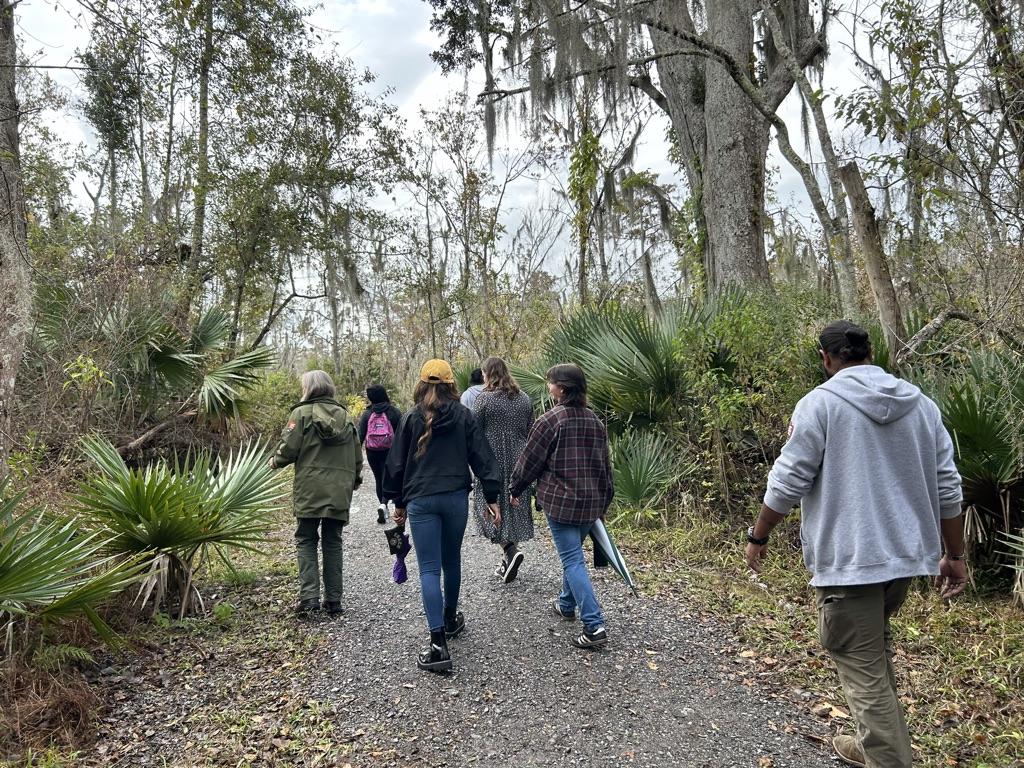Gulf Scholars Program supports students with additional funding
The Gulf Scholars Program at Tulane University recently received additional funding to support the aim of preparing students to address the most pressing challenges facing the Gulf of Mexico region.
Tulane was selected as an inaugural cohort of the Gulf Scholars Program in 2021, in partnership with Xavier University.
At Tulane, students in the Gulf Scholars Program take two required classes, Indigenous Cultures and Communities of the Gulf South and Gulf Coast in 2100, and they complete a Gulf Impact Project, either as a research project or with a local nonprofit.
“The classes are not part of a major,” said Marie Dahleh, faculty director of the program and associate dean for EDI, Strategic Innovation and Master’s Program in the School of Science and Engineering, “which was intentional, because they’re supposed to be broad and open to everyone.”
The classes attract undergraduate students from across Tulane’s schools and are a great recruiting tool for the program, since many students hear about the Gulf Scholars Program for the first time as students in one of the classes.
“That’s how I got into the program,” said C.K. Keckley, the first graduate of the program, “I heard about it through class.” Keckley is now the program coordinator for the Xavier-Tulane Gulf Scholars Program.
“We have tried to structure things around Tulane’s strengths,” said Dahleh, pointing out the strong interdisciplinary research that goes on at Tulane, as well as already existing programs like the Bywater Institute and A Studio in the Woods. “We were well-positioned to do something that’s related to global climate change and the Gulf that’s not research.”
Tulane students have worked with local community partners from America's Watershed to Glass Half Full to the Louisiana Children’s Museum for their Gulf Impact Projects.
“This program is pretty broad in what the students can do, and that’s intentional, because the outcome is that students will see that there’s something that aligns with something they’re interested in doing and how that might impact the Gulf,” said Dahleh.
The money the program received will mainly go toward supporting the Gulf Impact Projects, in part by allowing the program to provide the scholars with a wage during their internships. This not only prevents students from needing to take unpaid internships, it also allows nonprofits to take on interns they might not otherwise be able to afford to pay.
The program also provides students with the opportunity to make connections with other people who have a similar passion for protecting the Gulf region, both through their internships and research projects and through the partnership with Xavier University.
“I think one of the big things that students and faculty like is that we do have a strong partnership with Xavier,” said Dahleh. Members of the Xavier-Tulane Gulf Scholars Program from both schools meet regularly for meetings and social events.
“One of the main things students talk about is how they like that the program allows them to connect with Xavier students, and that’s something they’ve requested more of,” said Keckley.

